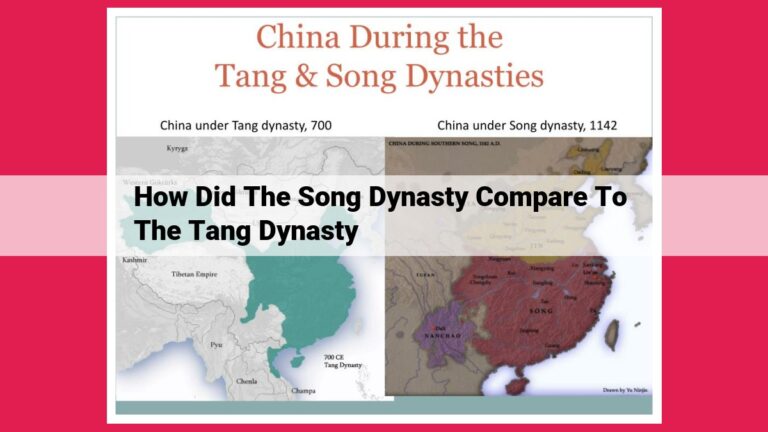Anti-Federalists: Defying Tyranny, Championing States’ Rights

Anti-Federalists vehemently opposed a robust central government, fearing tyranny and oppression. They argued that excessive federal power would erode state sovereignty, undermine local decision-making, and compromise individual liberties. Anti-Federalists believed in the importance of checks and balances, preferring state sovereignty as a safeguard against government overreach. Their concerns shaped the debate over the Constitution, influencing the balance of power between the federal and state governments.
Anti-Federalists: Fearful of Tyranny and Loss of State Sovereignty
In the late 18th century, America grappled with the fundamental question of how to govern a vast and diverse nation. The proposed Constitution sparked heated debate, with the Anti-Federalists vehemently opposing its ratification. Their concerns centered on the potential for tyranny and the erosion of state sovereignty.
The Anti-Federalists believed that a powerful central government, as proposed by the Constitution, would inevitably lead to oppression. They argued that concentrating too much power in the hands of a few individuals would create a breeding ground for dictatorship. They feared that the federal government would trample on the rights of citizens and stifle local decision-making.
To safeguard against such a scenario, the Anti-Federalists championed the importance of state sovereignty. They believed that each state should retain its own autonomy to make laws, regulate commerce, and protect its citizens’ rights. They viewed state sovereignty as a bulwark against federal overreach and a guarantor of local control.
Importance of Local Control and Individual Rights
- Highlight Anti-Federalists’ emphasis on local decision-making by those familiar with community needs.
- Discuss their belief in the sanctity of individual rights and liberties, which they felt needed protection from government infringement.
Local Control and Individual Rights: The Anti-Federalist Perspective
For the Anti-Federalists, local control and individual rights were paramount. They believed that decisions should be made by those closest to the issues, not by a distant, centralized government. Local officials, they argued, had a deeper understanding of the needs and aspirations of their communities.
Furthermore, the Anti-Federalists held individual rights in the highest regard. They believed that these rights were inalienable and that no government should have the power to infringe upon them. They feared that a strong central government could easily usurp these freedoms, using its authority to suppress dissent and control the lives of ordinary citizens.
For these reasons, the Anti-Federalists advocated for a system of limited government, with clear checks and balances. They believed that the federal government should have only those powers specifically delegated to it by the Constitution, and that the states should retain all other powers. Only through this decentralized system, they argued, could individual rights and local autonomy be preserved.
In the end, the Anti-Federalists failed to persuade enough of their contemporaries to adopt their vision for America. However, their influence on the shape of the Constitution cannot be overstated. The Bill of Rights, which guarantees individual freedoms, was added in large part due to their efforts. And the principles of federalism and local control continue to be cornerstones of American governance today.
The Dangers of a Powerful Central Government: Anti-Federalist Concerns
The Anti-Federalists, a formidable force in the debate over the U.S. Constitution, harbored grave concerns regarding the dangers inherent in a strong central government. They believed that concentrating too much power in the hands of a distant and unaccountable federal authority posed a serious threat to fundamental freedoms and individual autonomy.
Their apprehension stemmed from a deep-seated fear of tyranny. History had taught them that centralized governments often succumbed to corruption and oppression, extinguishing the rights and liberties of citizens. They argued that a strong federal government could become a colossal juggernaut, trampling on local autonomy, and ignoring the unique needs of individual states.
The Anti-Federalists cited potential abuses of power as a clarion call for alarm. They worried that the federal government could infringe upon freedom of speech, religion, and the press, curtailing the very freedoms that had ignited the American Revolution. They feared that standing armies could be used to suppress dissent, squelching any opposition to government overreach.
In their eyes, a distant central authority was divorced from the local realities and sensibilities of the people. They believed that local control was essential for responsive and accountable governance, ensuring that decisions were made by those who understood the specific needs of their communities. By safeguarding state sovereignty, they aimed to preserve a bulwark against tyranny, preventing the federal government from becoming an unyielding monolith.
Defending State Sovereignty and Local Autonomy: The Anti-Federalist Perspective
The Anti-Federalists were staunch opponents of the proposed Constitution, fearing that it would create a government too powerful and distant from the people. They believed that state sovereignty and local autonomy were crucial safeguards against tyranny.
The Anti-Federalists argued that a strong central government would erode the power of individual states. They believed that states were better equipped to represent the needs of their citizens and protect their rights. By maintaining state sovereignty, states could make decisions tailored to their unique circumstances without interference from a remote federal authority.
Moreover, the Anti-Federalists believed that a system of checks and balances between federal and state governments was essential to prevent the concentration of power in any one entity. They envisioned state governments as watchdogs, monitoring and limiting the actions of the federal government. By balancing power between different levels of government, they hoped to minimize the risk of overreach and ensure that the rights of individuals and states were respected.





